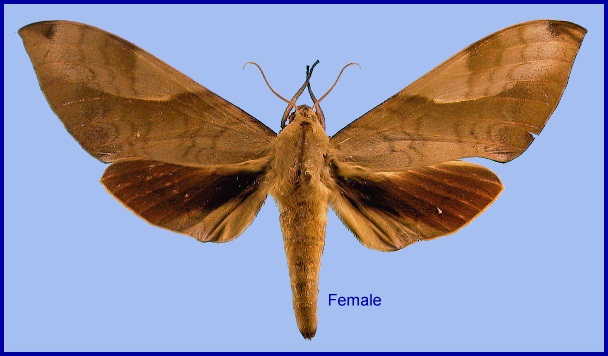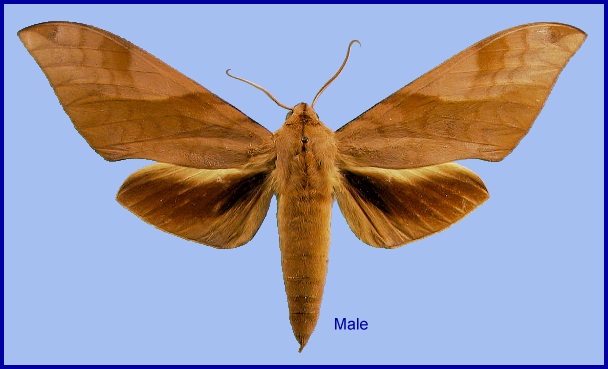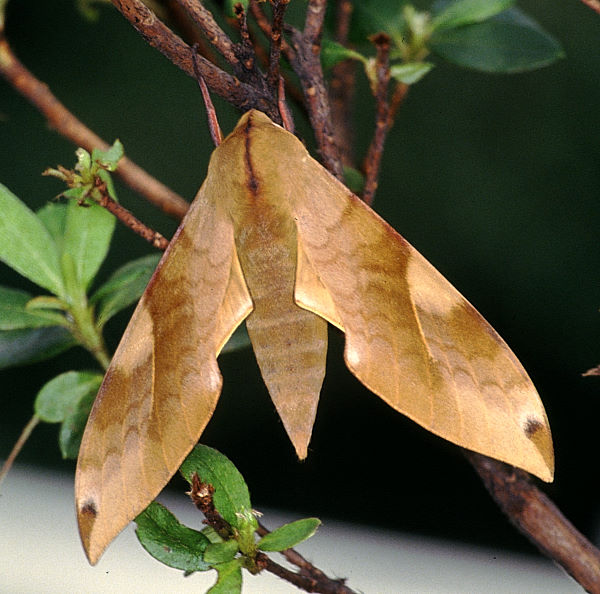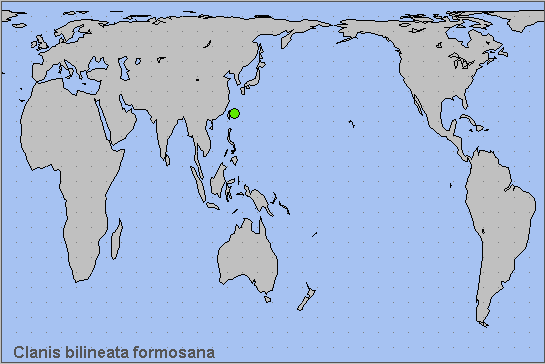

Clanis bilineata formosana Gehlen, 1941, Ent. Z., Frankf. a.M. 55: 178. Type locality: Formosa [Taiwan].
Note. Up until recently, three poorly differentiated subspecies were recognized; these have now been synonymized (see below). The more heavily marked Clanis bilineata tsingtauica Mell, 1922, occurs in Japan and northern China as far south as Shaanxi and Zhejiang. The more lightly marked nominotypical subspecies, Clanis bilineata bilineata (Walker, 1856), has been recorded from Sichuan and Guangdong, from where it extends west to Nepal and south to southern India, Thailand and Vietnam. The status of the intervening Chinese populations from Hubei, Hunan, Jiangxi and Fujian remain to be ascertained (Pittaway and Kitching, 2000). The population on Taiwan is Clanis bilineata formosana Gehlen, 1941 (Lin, 1989).
Note. As this is quite a variable species with regard to wing patterning and DNA barcodes, with these having no apparent habitus or geographical correlation, Eitschberger, 2004, Neue ent. Nachr. 58: 79-80 synonymized all subspecies with the nominotypical subspecies. However, reinstated as a subspecies of Clanis bilineata by Heppner, 2012, Lepid. Novae 5: 32, who asserted that 'The subspecies concept is that they are merely geographic labels for disjunct populations of a single species and need no specific morphological differences to be established as such. Each population surely has some differences, but geographic isolation should be the only criterion in using subspecies names'. There is no scientific justification for such a subspecies definition and it is therefore rejected. Resynonymized with the nominotypical subspecies by Kitching and Rougerie et al., 2018, Biodivers. Data J. 6: e22236.

Taiwan: iii-iv (Hualien Hsien); iii-v (Kaohsiung Hsien); v (Pingtung Hsien); vi (Kaohsiung Hsien); vii (Pingtung Hsien); ix (Pingtung Hsien).
OVUM:
LARVA:
PUPA:
Larval hostplants. On Pueraria montana var. lobata in Taiwan (ShiPher Wu, pers. comm. 2012). Also Callerya nitida, Callerya reticulata, Pongamia pinnata [syn. Millettia pinnata], Mucuna macrocarpa and Ormosia formosana.
Taiwan: Nantou Hsien (Puli); Pingtung Hsien (Kenting); Kaohsiung Hsien (Shanping, 640m; Liukuei); Taipei (Shikanshuei; Jingmei; Wulai); Taipei Hsien (Hsintien); Hualien Hsien (Taroko National Park; Hungyeh).
Endemic to Taiwan.

 Return to Sphingidae of the Eastern Palaearctic species list
Return to Sphingidae of the Eastern Palaearctic species list